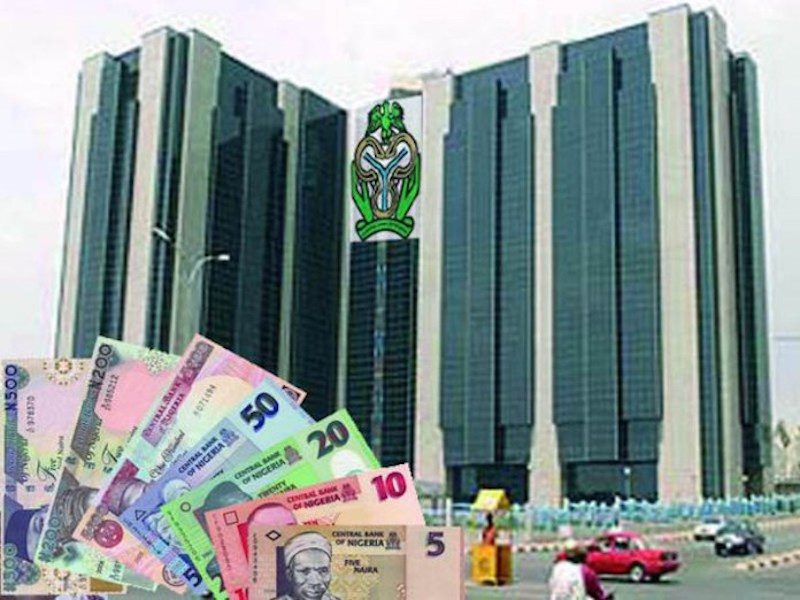Trends
E-Naira: Did the CBN Miss the Point?
Nigeria has been one of the leading markets for digital currencies, ranking sixth… world. Do you think the CBN missed the point on E-Naira?

The crypto space in Africa has been on flight since it became a viable market to invest in and also trade with. African countries like Kenya, Ghana and Nigeria are the biggest patrons of cryptocurrencies on the continent. The African crypto market accumulated over 100 billion dollars in the last year and this figure keeps rising despite the ban on crypto transactions in countries like Kenya and Nigeria. Do you think the CBN missed the point on E-Naira?
The Ban on Crypto
In Nigeria, the crypto space was uninterrupted until 7 February 2021 when a ban was issued on banks and other financial institutions to stop transactional activities on anything crypto-related. Nigeria has been one of the leading markets for digital currencies, ranking sixth in terms of cryptocurrency adoption in the world. Being one of the largest involvers in crypto engagements, the policies and attitude toward the progress of crypto engagements in Nigeria have not been favourable to holders of crypto coins and this has further made it a complicated and uninteresting space for some set of people especially the older generation.
On a granular level, the thrive of Bitcoin purchase and crypto exchange has enjoyed so much attention from Nigerians because of the possibilities of holding assets in hard currency and having to be in sole control of ownership and exchange rates and these possibilities in crypto trading has made it a viable source of income for young chaps in the country.
It is quite understandable why the Central Bank of Nigeria (CBN) issued the circular on the ban on financial institutions dealing in cryptocurrencies as part of their reasons were that the crypto market had its source unknown and also the problem of regulation. However, the CBN cannot deny that it is a viable market for investment despite its fluctuation and instability like any other fiat currency to fall and rise.
Recently, several schemes by the CBN have been instigated to deter persons from engaging in the crypto market and this continuously makes it an issue for both fintech and the general public in Nigeria. It is indisputable that the crypto market would be an everlasting space in the financial ecosystem and this is because the market is complemented side by side technology and as long as technology exists, crypto is going nowhere.
Like many other apex authorities of financial institutions in a country, the CBN is charged with the responsibility of overseeing and regulating the activities of banks and other financial institutions in Nigeria by virtue of section 2 of the CBN act. This saddles them with the responsibility of ensuring that there is strict compliance with policies and laws in the financial ecosystem of Nigeria. Furthermore, the CBN ensures that the general public is safe from financial impediments and risks that might happen in the financial ecosystem and is quick to make policies and issue circulars to deter the entire public from indulging in such.
The CBN on two occasions issued two different circulars preventing banks and other financial institutions from involving themselves with transactions that had the stench of crypto in it because of the clandestine possibilities inherent in the usage of cryptocurrencies. However, at the first capital market committee webinar held on 15 April 2021, the chairman of the SEC, Mr Olufemi Lijadu during his speech delivery, said that CBN would give its verdict soon on the ban of cryptocurrencies in Nigeria, that the mother bank was still making researches and findings as to how beneficial it would become to Nigerians at large.
Outside speeches on pen and paper, in reality, the attitude of the Central Bank of Nigeria towards the crypto market have rather shown that the CBN has no intentions of giving the crypto market a chance at its possibilities as recently the governor of the central bank of Nigeria had declared that cryptocurrency dealers were using the currencies to commit crimes.
In Yatoshi’s defence, it is inevitable to have a creation of man void of human manipulation and cryptocurrencies cannot be thrown in the quagmire for being manipulated to satisfy greedy intentions. The problem still remains the inability to regulate and control how the market operates and once this is impossible the issue of paying taxes on crypto transactions becomes a fairy tale. This problem is not just faced by Nigeria alone, as several countries have cried out on the decentralized nature of cryptocurrencies and the possible damage they can do if allowed to freely exist.
It is obvious that there is a pattern here with what the CBN intended to do with the introduction of the eNaira as the first CBDC in Africa and also to operate as a digital currency. However, the e-Naira is not hybrid in nature as the CBN had made known to users that it is in no way a cryptocurrency and should not be perceived as one as the eNaira is the CBN’s response to the nationwide participation in digital currencies.
E-Naira: The CBN Stable Coin
The e-Naira is the digital form of the Nigerian fiat currency currently in circulation for transactions and exchange designed by the fintech company Bitt. The e-Naira is built on a blockchain open ledger technology that prevents replication or recreation of counterfeits i.e each e-Naira note has a distinct and unique form. To put it simply, the value of one e-Naira is equivalent to one Naira; the only difference being that one is digitally and electronically handled while the other is physical and handy.
The central bank of Nigeria is directly liable and responsible for the circulation and issuing of the e-Naira to financial institutions to make it available to the general public to use. The e-Naira is held in a wallet called the e-Naira wallet which is a major requirement to access and hold the e-Naira just like other digital currencies. The wallet is divided into several tiers with different daily transactional limits to enable it accessible to all and sundry of which this peculiarity makes it a flexible and handy wallet for both the banked and unbanked.
It becomes further interesting when the question of “if the e-Naira is a response by the CBN to the clamour for the general public in the involvement in decentralized currencies” is asked the reason being that after issuing a circular on the ban on financial institutions in dealing on cryptocurrencies, four months later the CBN announces the introduction of the e-Naira into the Nigeria financial ecosystem in a bid to foster and promote digital banking. After its launch on 25 October 2021, it appears that Nigerians are quite unbothered about its existence or how it functions because of a plethora of reasons uprooted during the #EndSars protest; as the event marked the beginning of bad blood between youths and the government and this made the later lose complete trust and hope in the former.
As earlier posited, the reason for the crypto upsurge in Nigeria is due to the major reason that the earnings are particularly in the dollar currency and for every one dollar earned, the dealer becomes five hundred and sixty naira richer. This margin makes it a viable market for young chaps to invest in as the concept of a 9-5 job is steadily becoming a façade.
Where did the CBN miss the point?
60% of the Nigerian population are youths within the age grade of 18-40 of which 56% of that population hold a crypto wallet equating to a net worth of over 1 billion dollars in market cap. The CBN overlooks the market figure of crypto to push the initiative of the E-naira is outright confusing. The initiative of the E-naira is welcomed but not timely and it certainly should not be the CBN’S response to the crypto ban. In an article by Omar Al Masri, a legal associate at BSA Ahmad Bin Hezeem & Associates LLP on his article on CBDCs, he stated that “While the benefits of the CBCDs encourage immediate implementation, the shortcomings draw an entirely different picture.” Firstly, CBDCs are not accepted outside the country where the CBDC are minted, so they are highly confined geographically. Second, having central banks issue their own digital currencies will have an immediate impact on financial institutions and banks because it means deposits are transferred from commercial banks to central banks. Consequently, this means a potential reduction in the size of balance sheets within the banking sector, resulting in a loss of income of banks.
More so, competition will arise as banks will be required to become innovative, including offering competitive interest rates on bank deposits as a strategy. However, this would ultimately lead to greater interest rates in the long run, affecting small and medium-sized businesses with low price sensitivity. CBDCs new investment prospects could reduce consumer deposit demand, which in turn would lower bank lending to the general economy and ultimately impact its growth. Commercial banks will also likely borrow internationally to finance their operations, which could leave the national banking exposed to external factors”
Aside from the glitches detected in the application, the E-naira has suffered a lack of attention by a handful of the general public and part of the reason is that CBDCs are actually regulated by the central bank of Nigeria and for a Nigerian to own the E-naira it is expedient that KYC obligations by the customer are fulfilled and this consequently exposes the information of the customer to the CBN. Already, the lack of trust in the Nigerian government started out at the End Sars protest as participants in the #EndSars protest had their bank accounts frozen for months and other life-threatening issues emanated from the event. All of these and more make the E-naira dead on arrival as the CBN policies on the E-naira does not clearly work for the percentage of people involved in digital currencies.
Conclusively, many Nigerians have suggested that the CBN should carefully study more on cryptocurrencies and their positive impact on the Nigerian economy as cryptocurrencies provide incentives for entrepreneurs in a global setting. It has made it easier for entrepreneurs to reach international markets rather than sticking to the national markets in contrast to CBCDs. It is understandable that the CBN is weary of the decentralized nature of cryptocurrencies and the inability to efficiently regulate cryptocurrencies is actually a global issue however, the CBN should not be lazy in enacting policies and monitoring the movement of cryptocurrencies in the country to efficiently control what it offers.
Meanwhile, here are Top 10 best cryptocurrencies you should invest in in 2022.


